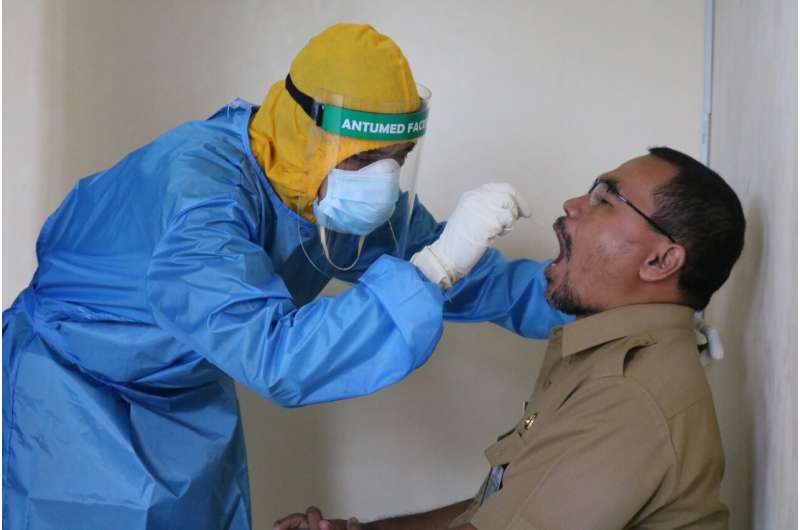This article has been reviewed according to Science X's editorial process and policies. Editors have highlighted the following attributes while ensuring the content's credibility:
fact-checked
peer-reviewed publication
trusted source
proofread
Infectious disease experts say it's time to end universal masking in health care settings

The time has come and gone for universal masking in healthcare settings, according to healthcare epidemiologists and infectious diseases experts from healthcare systems throughout Boston and beyond. In a commentary published in Annals of Internal Medicine and co-authored by experts from Mass General Brigham, Beth Israel Lahey Health, Tufts Medicine, the VA Healthcare System Boston, and other healthcare systems across the country, the authors describe the changing context and conditions of the pandemic and outline why universal masking should no longer be required in healthcare settings.
"While critically important in the earlier phases of the pandemic, we've entered a more stable phase, with substantial population-level immunity, durable protection against severe disease, a series of less virulent variants, and other important and favorable changes," said corresponding author Erica S. Shenoy, MD, Ph.D., medical director of Infection Control for Mass General Brigham and an infectious diseases physician at Massachusetts General Hospital (MGH). "As conditions change, we need to re-evaluate our infection prevention policies, including masking requirements in healthcare settings, and adapt."
In the commentary, the authors emphasize different phases of the pandemic and describe that while universal masking was justifiable before medical countermeasures were available, advancements and population immunity have changed the appropriateness of the policy. Highlighting a theme of constant and ongoing change, they review the rationale for initially expanding mask use in healthcare settings, the reasons why de-escalation is needed, and conditions that could prompt reconsideration of use of masks more widely again.
"After three years of universal masking in healthcare, the risk-benefit calculation has shifted," said Shira Doron, MD, chief infection control officer for Tufts Medicine health system and hospital epidemiologist at Tufts Medical Center. "Masks do have downsides, such as impaired communication and disrupted human connection. We are at a stage of the pandemic where it now makes sense to end mandatory masking."
Given advancements, the authors advocate for managing SARS-CoV-2 in a similar way to how other respiratory viruses are managed in healthcare settings. This includes ensuring healthcare personnel use masks (and eye protection) when engaging in activities that could generate splashes or sprays and having patients mask if they have respiratory symptoms.
"As the pandemic moves into an endemic phase, we need to transition prevention efforts to incorporate all respiratory viruses. Performing risk assessments and applying lessons learned from COVID-19, including about how to apply masking, will permit a more flexible, durable response now and in future seasons," said co-author Sharon Wright, MD, MPH, chief infection prevention officer at Beth Israel Lahey Health in Cambridge.
"The best evidence-based policy making is dynamic, and adapts to changing conditions, evidence, and contexts. As all these factors change, even policy goals may need to be updated," said senior author Westyn Branch-Elliman, MD, MMSc, an infectious diseases specialist and clinical investigator at VA Boston Healthcare System. Since 2020, she explained, society has been living in a constant state of change during which we have achieved major preventative and therapeutic advancements and the infection fatality rate has fallen dramatically. She continued: "At the same time, we know universal masking is not without costs, even in healthcare. Given these realities, it is time to update policies once again, recognizing this is unlikely to be the last update. Change and adaptation are expected. That does not mean 'the science has changed', but almost everything around it has."
More information: Universal Masking in Health Care Settings: A Pandemic Strategy Whose Time Has Come and Gone, For Now, Annals of Internal Medicine (2023). DOI: 10.7326/M23-0793


















